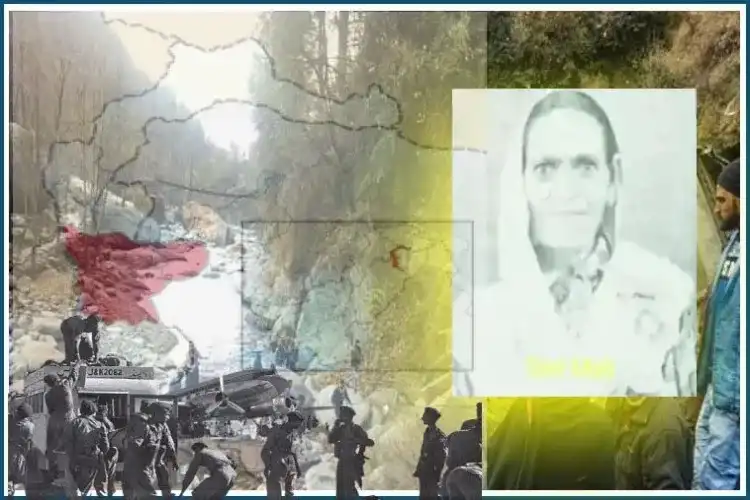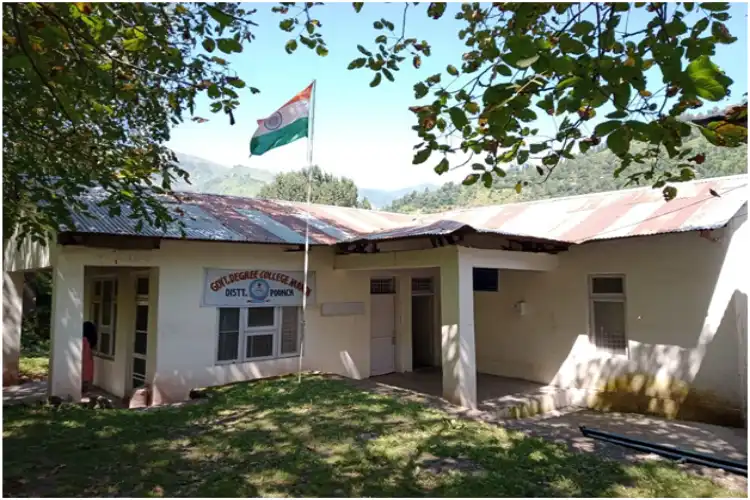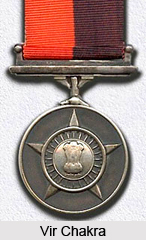Srinagar
When in September Jammu and Kashmir Lt Governor Manoj Sinha signed an order to rename the Government Degree College in Mandi, a small town in Poonch, on the Line of control, after Mali Bi, he was giving the due honour to the memory of a hero whose timely alert had prevented a major attack by the Pakistan Army to take over Poonch city during the 1971 war.
As has happened with many real heroes of J&K, Mali Bi’s contribution to national security was never recognized by the State government. Mali BI became the first Gujjar to receive the Padam Shri in 1972. Interestingly, the Indian Army had recommended a Vir Chakra, the highest wartime bravery award for her but the government settled for something less. Mali Bi’s timely information to the Army about the presence of Pakistani troops on snow-clad peaks had helped prevent a major covert operation of Pakistan to take control of Poonch city.
Mali Bi was in her late forties when she spotted Pakistani soldiers in a dhok, temporary mud houses used by the nomadic Bakerwal tribesmen while moving with their cattle. She first spotted smoke coming out of an abandoned dhok and then she quietly peeped in and saw unformed soldiers cleaning their guns and cooking.
At that time, Mali Bi lived in the village of Arai in Tehsil Mandi, Poonch with her brother. She was a child bride and later discovered her husband was mentally deranged. She returned to her home. During summers, she used to take the cattle to higher areas like Jabbi and Pillanwali for grazing and it made her familiar with the routes.
Mandi Degree College will be renamed after Mali Bi
On December 13, 1971, she had gone to Pallanwali to pick a stack of fodder when she saw the smoke and spotted the Pakistanis.
She gathered her wits and kept her cool lest she is spotted by the intruders and ran through the knee-deep snow. She first tried to speak with the ITBP men stationed at Mandi but failed to convey to them since she could only speak Gojri.
First, she returned home and tried to seek the help of her brother. The family too dismissed her fears.
Pictures of Mali Bi and she receiving Padam Shri on display in her house
Col Lalit Chamola, who had met Mali Bi in the late nineties in her house write about her in a Jammu-based newspaper Daily Excelsior.
“..she saw smoke coming from some Dhoks. It was an unusual activity as nobody used to come to these areas during the winter. She became suspicious and hence with utmost caution and stealth approached one of the Dhoks.
“She heard some voices and peeped through the crack in the door of the dhok. She saw a few soldiers sitting and cleaning their rifles. She was frightened but did not panic. She realized that these soldiers were not of the Indian Army and thus very intelligently and without making any noise, she with utmost care but at top speed in knee-deep snow took another route to quickly reach Arai.”
Mali met the village Sarpanch, Mir Hussain who first thought she was unwell and needed medical help. Mali told him what she had seen.
They took a snow-covered and shorter route towards Kalai where an ITBP detachment was posted. They took her to the nearest Army post.
With the help of the interpreters, Mali conveyed to the soldiers what she had seen.
Vir Chakra
In the darkness of the night, Mali sat in the Army vehicle to guide the troops to the dhok where 30 Pakistan troops were readying for the attack.
“The Infantry Unit’s quick actions resulted in the killing and capture of a platoon that captured 20 to 30 Pakistani soldiers. Their quick interrogation revealed that a Battalion-sized force was infiltrating through the Nalas and jungles between Doda and Saujian and was to attack Poonch from the rear,” Col Chamola writes.
“Poonch was an important target for the enemy during the war. In 1965, Pakistan lost the strategically important Hajipur Pass and was now planning to capture Poonch.”
“The entire Brigade was mobilized and the infiltrating columns of the Pakistan army were neutralized before they could reach their launch pads. Thus a grave threat to the Poonch garrison and the ammunition as also logistic depots of our Army were saved. The courageous and deeply patriotic acts of Smt Mali saved hundreds of lives and the prestige of the Army and country. The brave act of the lady was duly recognised by the Army.”
Col Chamola, who met Mali Bi in 1999 says she was not physically too well and was not being looked after by the State. She lived off her Rs 60 monthly pension.
The Colonel who had taken charge of the area, says on his recommendation she started getting free rations from the Army and financial help from the government.
On meeting Mali Bi in 1999, Col Chamola writes:
“I felt honoured to be standing in front of a real warrior and true daughter of this country. I immediately came out and told the Young man Mohd Azam the nephew of Smt Mali that I wanted to meet the Lady. She was very hesitant to come out and meet the “Fauzis”, but I kept insisting. As soon as she came out, “I instinctively saluted her because I was overwhelmed by the presence of a lady who had staked her life, not bothered by the difficulties she would face in her village and community, and walked a long distance in thick snow and inclement weather to save the lives of people and honour of the country.”
It may be recalled the Gujjar tribe has been in the forefront of fighting Pakistan-sponsored terrorism in J&K. While joining the army is a passion among the youth, women like Kausar Bibi of Rajouri have fought with terrorists.



